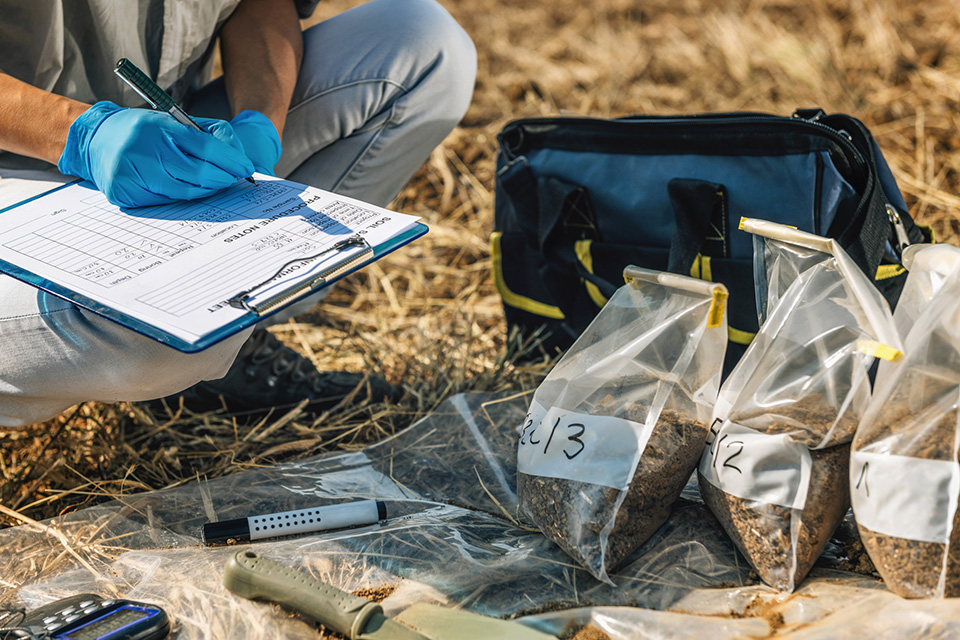CSUN Profs Receive Grant from the U.S. Department of Defense to Develop GeoAnalytical Center

A team of CSUN geological sciences professors has been awarded a grant by the US Office of the Secretary of Defense to help develop a GeoAnanlytical center. Photo credit, microgen, iStock.
A team of California State University, Northridge geological sciences professors, led by professor Scott Hauswirth, has been awarded $600,000 by the United States Office of the Secretary of Defense to help develop a geological center at the university.
The GeoAnalytical Center will connect a suite of equipment and instrumentation that will be used for teaching as well as to support various research projects.
“The instrumentation will be directed toward research related to water, environmental science and geologic hazards, as well as more traditional geologic studies,” Hauswirth said. “The center will also allow us to expand opportunities for our students to get hands-on experience, build and expand collaborations with other researchers in the area, and conduct outreach to the greater community.”
The Department of Defense announced in 2019 that 59 university researchers at 44 institutions were selected to receive grants provided by the Historically Black Colleges and Universities and Minority Serving Institutions Science Program, to enhance their research and education.
The funding period for the project began in September 2019. Thus far, the team has ordered most of the instruments and installed an ion chromatograph, which has been used to measure concentrations of ions in stream water impacted by the Woolsey Fire and in stream water impacted by the second largest mercury mine in North America, the New Idria Mine. The CSUN teams also plan to use a ground-penetrating radar for teachings and demonstrations.
“This award allowed us to expand our capabilities through the purchase of more than $500,000 worth of instruments and equipment and bring together the various faculty to centralize and improve sharing of both the new and existing equipment,” Hauswirth said.
The researchers have worked with CSUN’s Physical Plant Management to upgrade lab space to accommodate instruments, though the effort has been put on hold due to COVID-19.
Through newly hired faculty, including Hauswirth, the geological sciences department has expanded research to include wildfire impacts on water quality, terrestrial oil seeps, transport of mercury and other metals in coastal watersheds, earthquake modeling, geodesy, and paleoclimatology to better understand climate change.
Hauswirth is the lead principal investigator and worked with six other geological sciences faculty – Priya Ganguli, Jennifer Cotton, Eileen Evans, Julian Lozos, Joshua Schwartz and Robinson Cecil.

 experience
experience